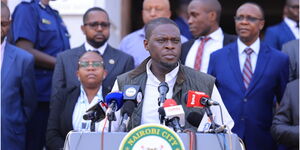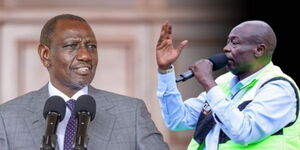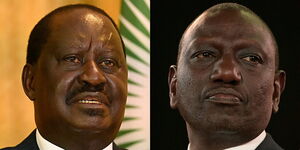Jackson Kamau, popularly known as DJ Soxxy on Tuesday, September 29, stirred a debate on Twitter with a question on a Sheng prayer that has been aired a number of times on television.
The DJ questioned whether it was right to refer to God as Fathela or Big man Bazu.
"When you are praying in Sheng' and call God Fathela and Big man Bazu, ati acheze kama yeye... hiyo maombi unaona ni kama itafika (Do you think that such prayers can be answered?" Soxxy posed.
The question has since sparked a debate on Twitter, with some users arguing that sheng is a language used by the youth to communicate and it would, therefore, be appropriate to use it even in prayer.
Others, however, were not for the idea and indicated that it was wrong to refer to the maker in such a manner.
"Sheng just like slang has a context, when spoken in that context it's non-offensive. Speaking Sheng with your peers is operating at their level. However, when addressing the king of kings we must accord to Him the due reverence even in our language!" a netizen stated.
"Oh yes. It is said, ask and you shall get regardless of what language you use it will be granted to you. Brother some of you speak in Koi-Koi language what makes it different from Sheng?" another posed.
Sheng language is widely used among the youth and it borrows words from different languages to enhance hidden communication to a group of targeted people, mostly young in age.
Kenyans are embracing the language with a section of politicians using it to woo the youth into voting for them during general elections.
Speaking to Kenyans.co.ke, Freddie Budaboss of the Hapa Kule News stated that language and interpretation was about context, intention of the author and understanding of the person of whom they write.
"The question that should be interrogated is if there is honour and respect in what is being used in the Sheng language. Interpretation is not just a matter of direct translation but it should be used to communicate honour to respect the person, who is God," he stated.
To answer the question of whether it was right or wrong to use the words, Freddie stated that one had to know the origin of the words.
"Nothing stops me from praying to God in sheng but I have to pray in understanding and to be very careful. One has to use words that have honour on the person on the receiving end," he concluded.












